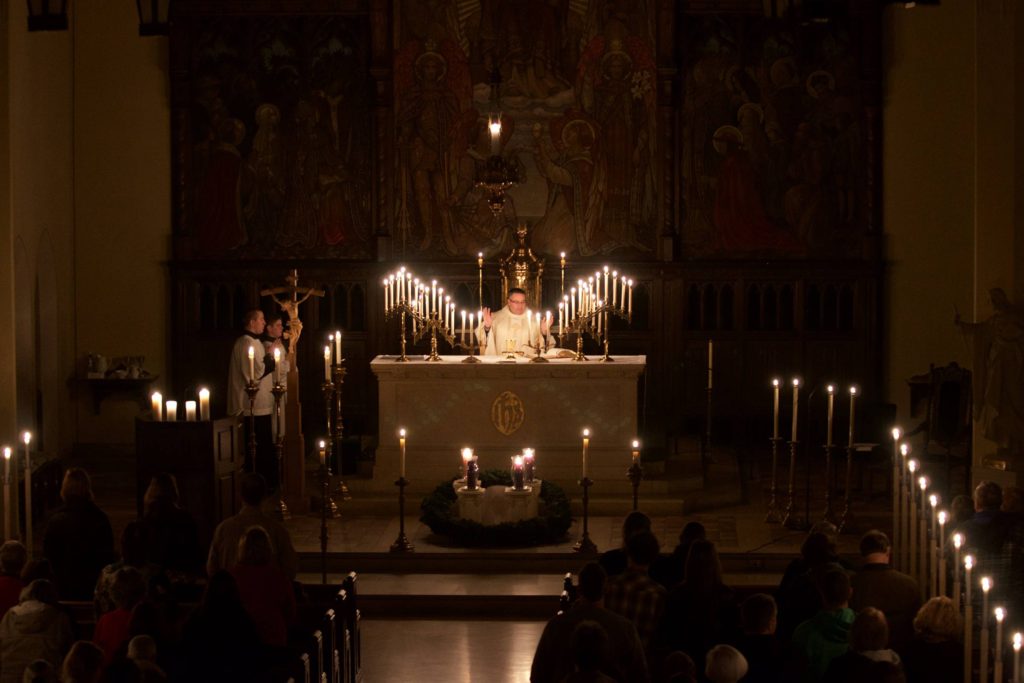[featured-image single_newwindow=”false”]
The Rorate Mass is a beautiful tradiation worth preserving for future generations. Here is my article at Aleteia:
The season of Advent falls each year in the dark month of December and it is a month when we see the general theme of the liturgical season being echoed in nature. Darkness has crept over the world, and is increasing each day. Yet, there is hope for soon the days will begin to lengthen and the sun will conquer the night. The earth reveals that there is a light in this dark place and that Light reigns victorious.
The Church makes this truth more visible with an ancient tradition (often forgotten) called the “Rorate” Mass. This votive Mass during Advent in honor of the Blessed Virgin Mary receives its name from the first words of the opening chant in Latin, Rorate caeli, or in English “Shower, O heavens.”
The Mass is most often celebrated in communities devoted to the Extraordinary Form of the Roman Rite (aka, the “Latin Mass”), but is also an option for parishes that celebrate Mass in the vernacular.
What is peculiar to this celebration of the Eucharist is that it is traditionally celebrated in the dark, only illuminated by candlelight and typically just before dawn. The symbolism of this Mass abounds and is a supreme expression of the Advent season.
First of all, since the Mass is normally celebrated right before dawn, the warm rays of the winter sun slowly light up the church. If timed correctly, by the end of Mass the entire church is filled with light by the sun. This speaks of the general theme of Advent, a time of expectation eagerly awaiting the arrival of the Son of God, the Light of the World. In the early Church Jesus was often depicted as Sol Invictus, the “Unconquered Sun,” and December 25 was known in the pagan world as the Dies Natalis Solis Invicti (Birthday of the Unconquered Sun). Saint Augustine makes reference to this symbolism in one of his sermons, “Let us celebrate this day as a feast not for the sake of this sun, which is beheld by believers as much as by ourselves, but for the sake of him who created the sun.”

